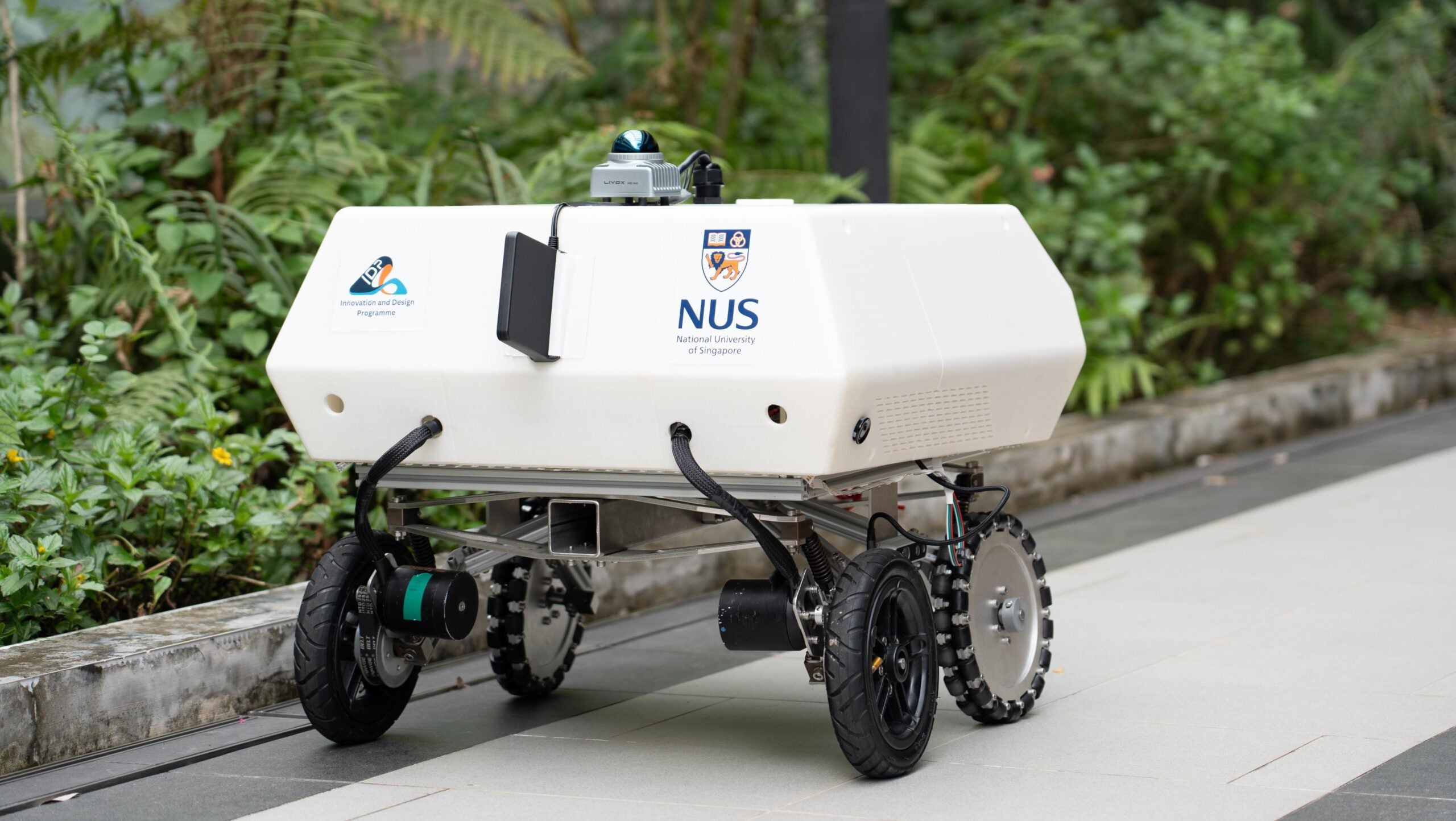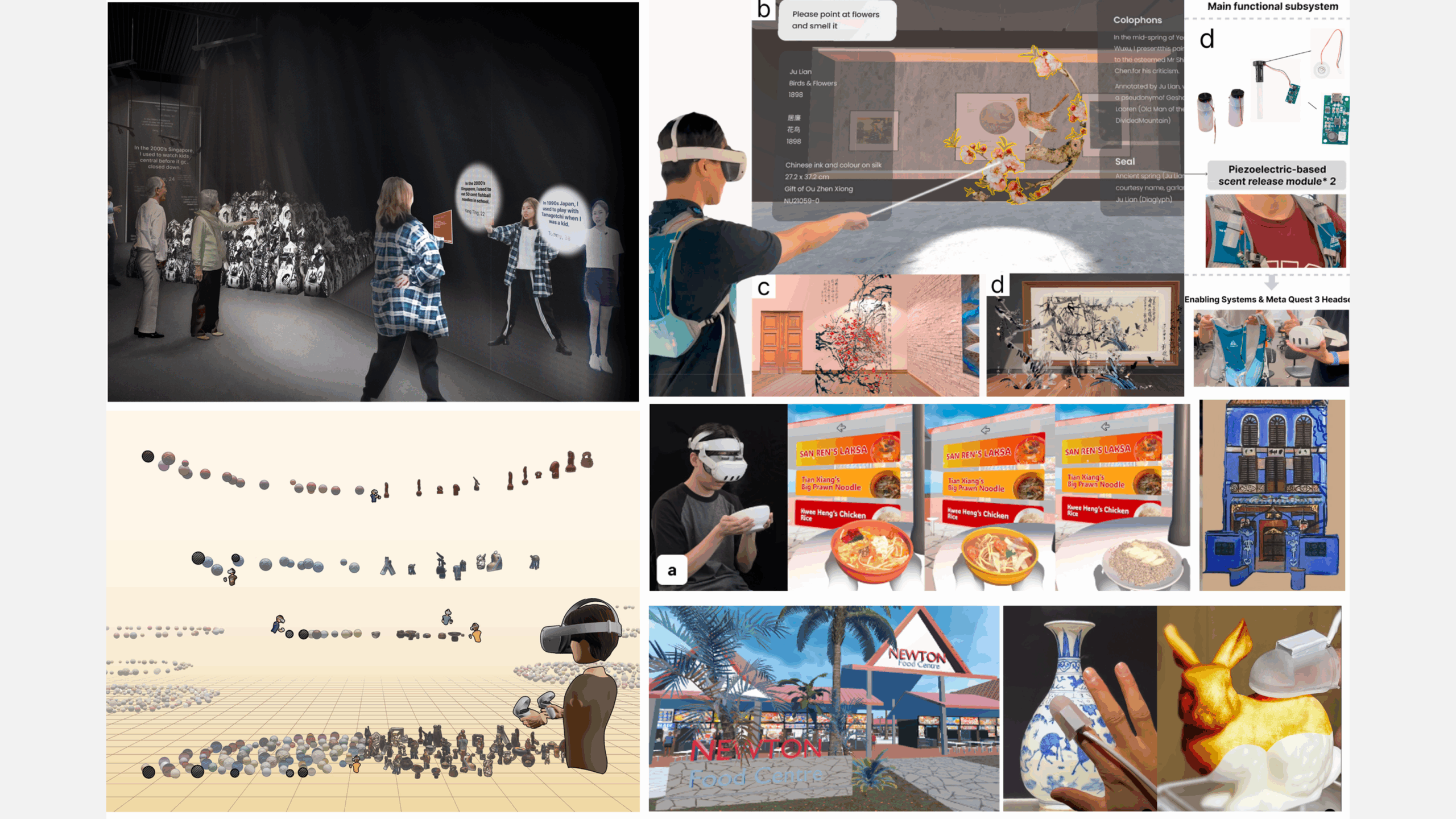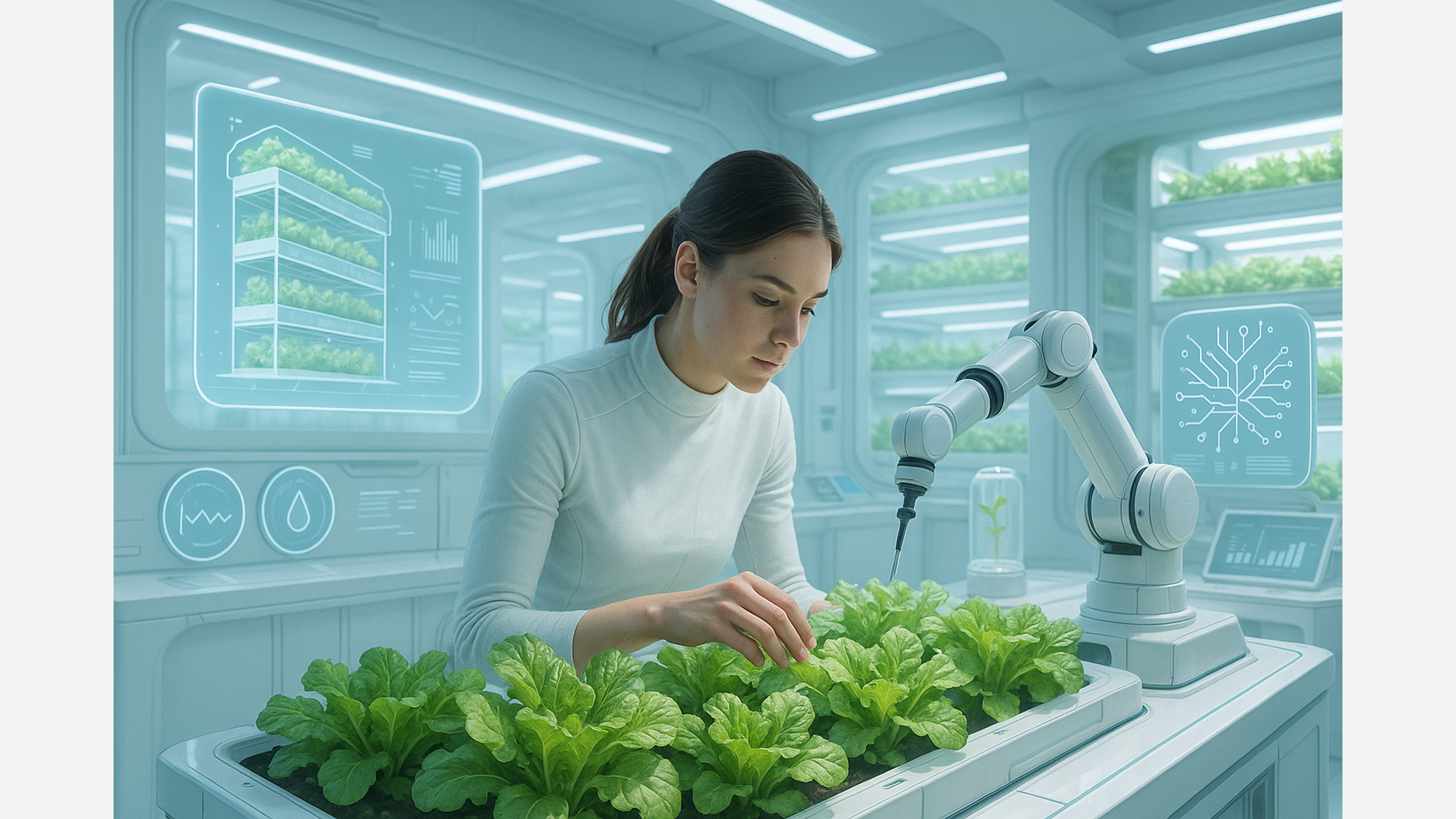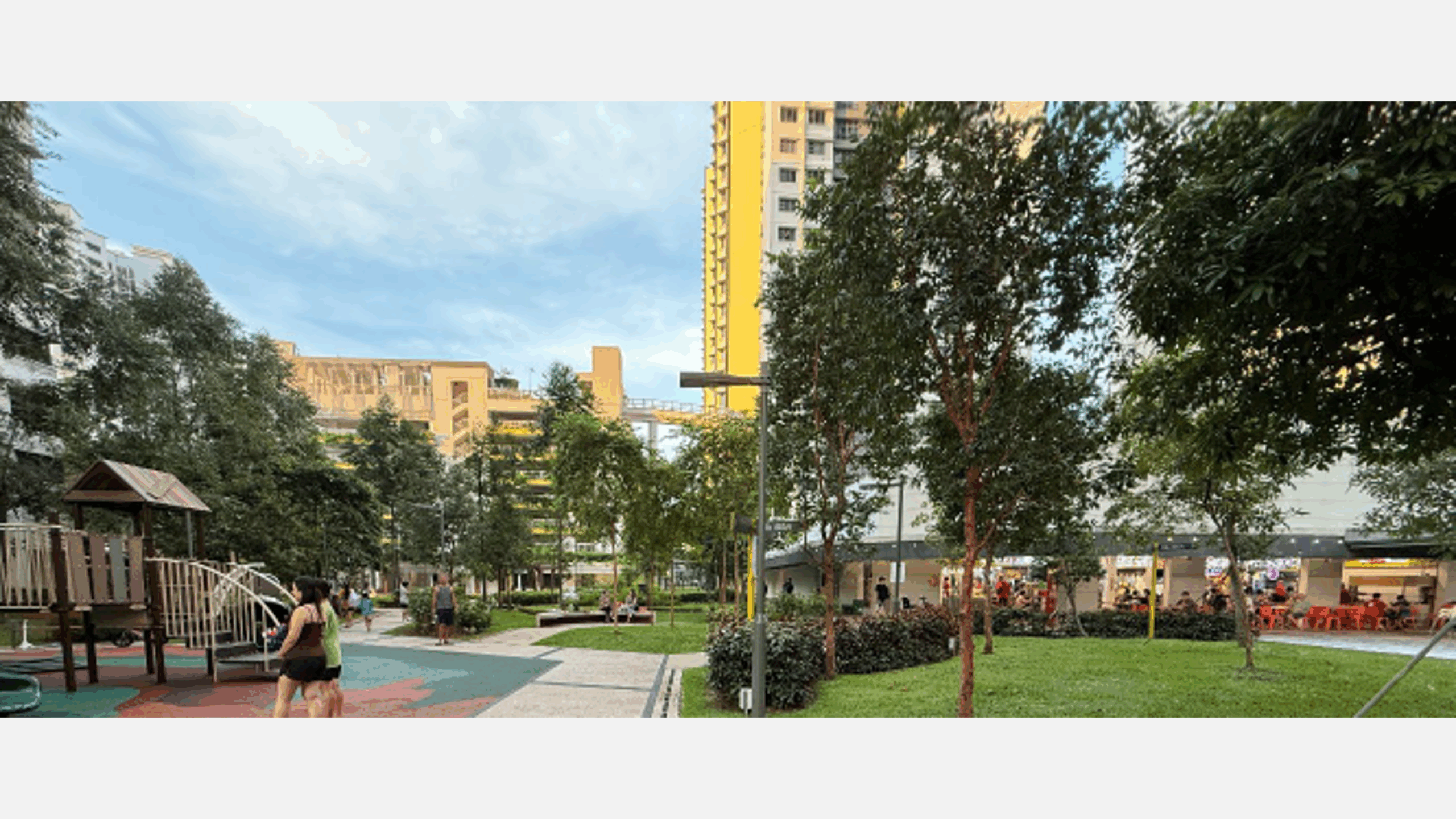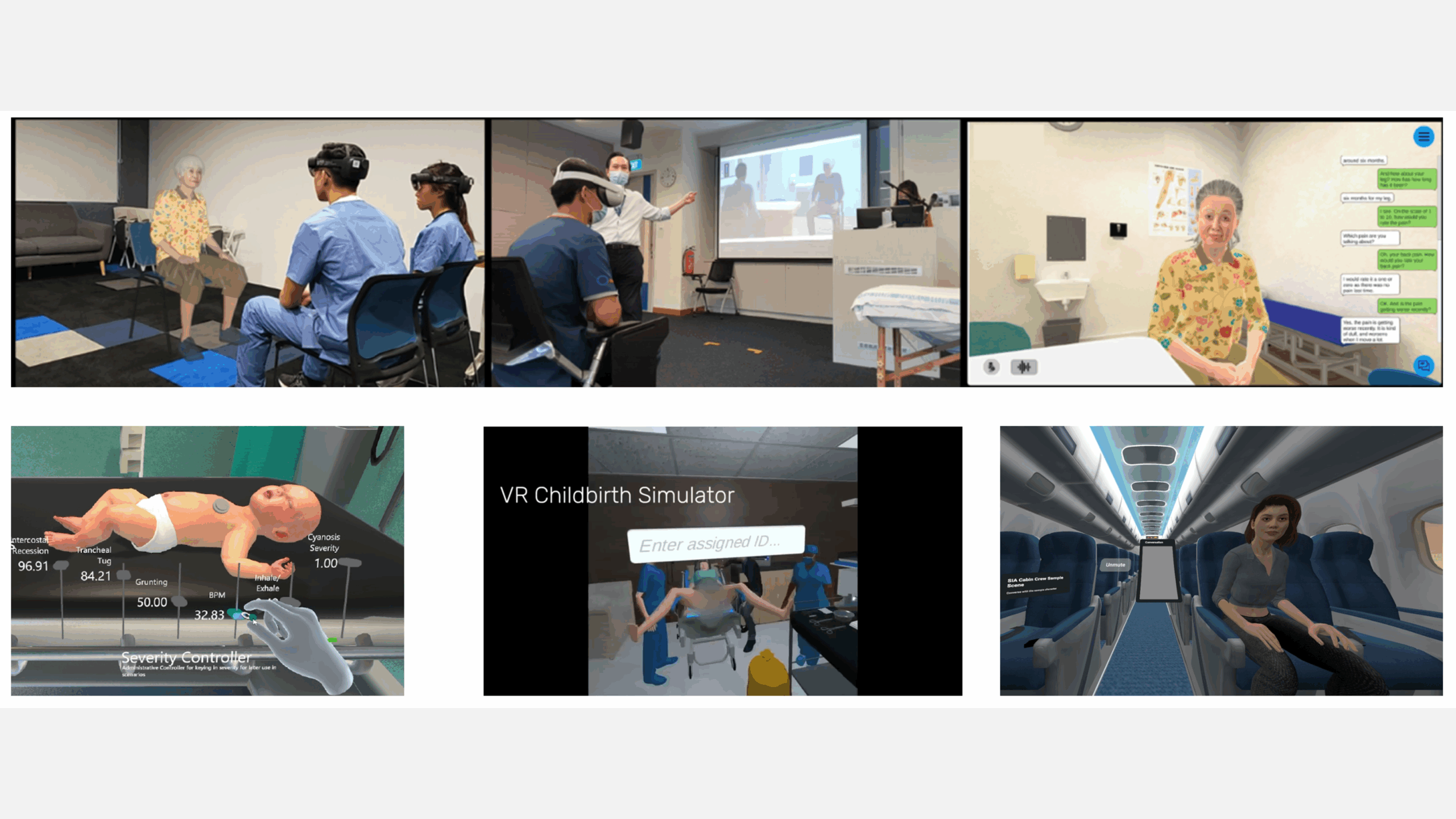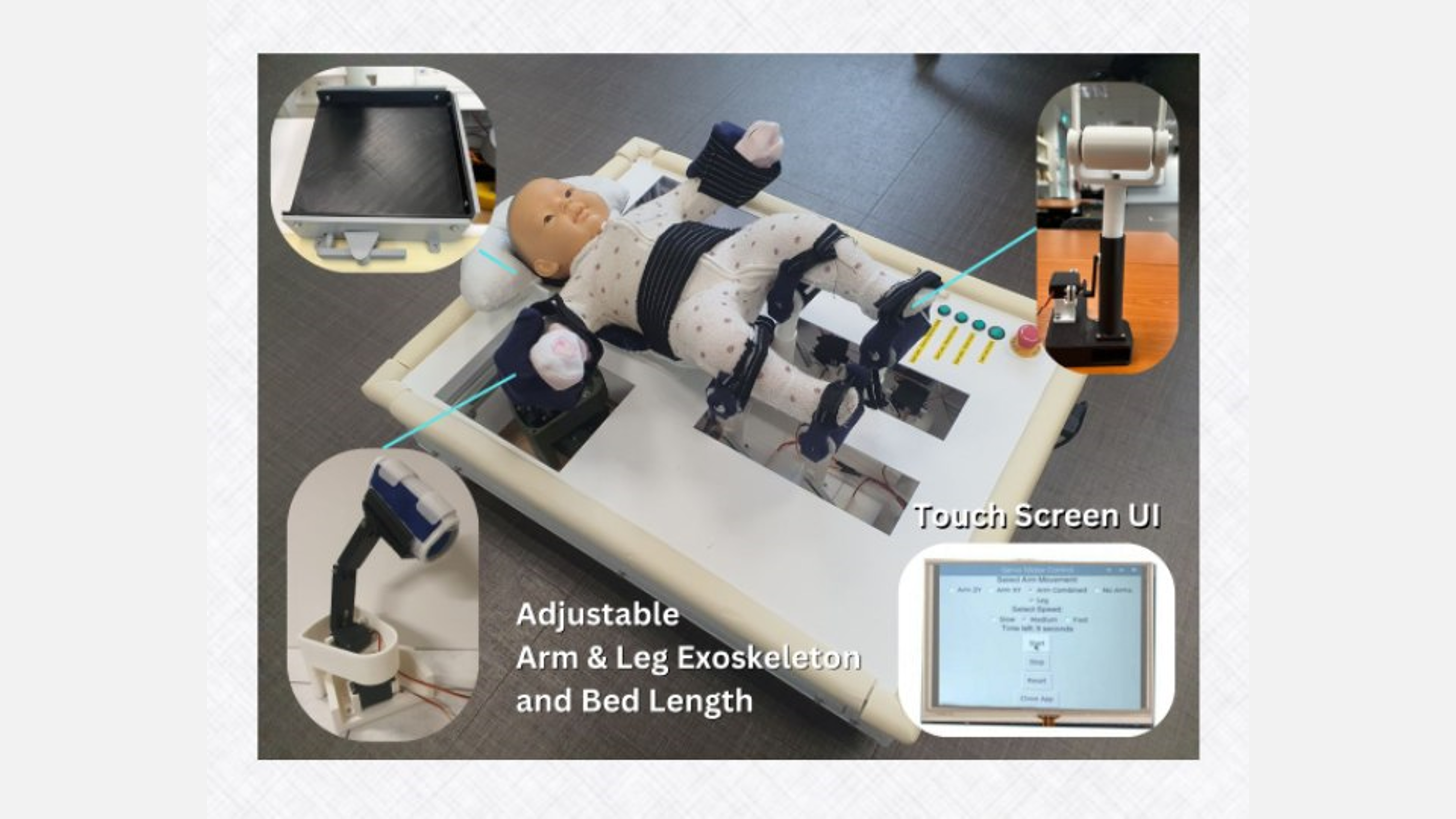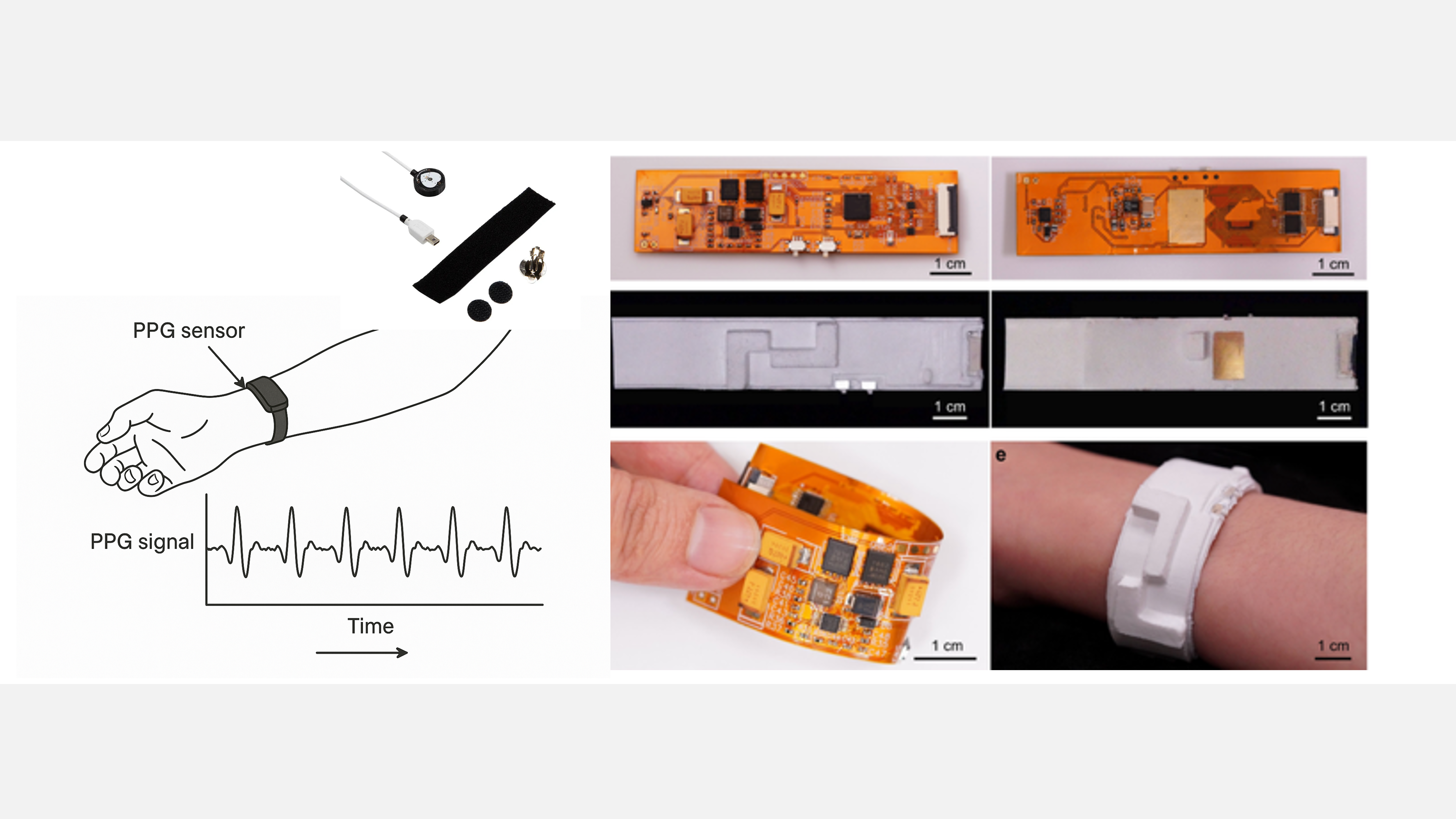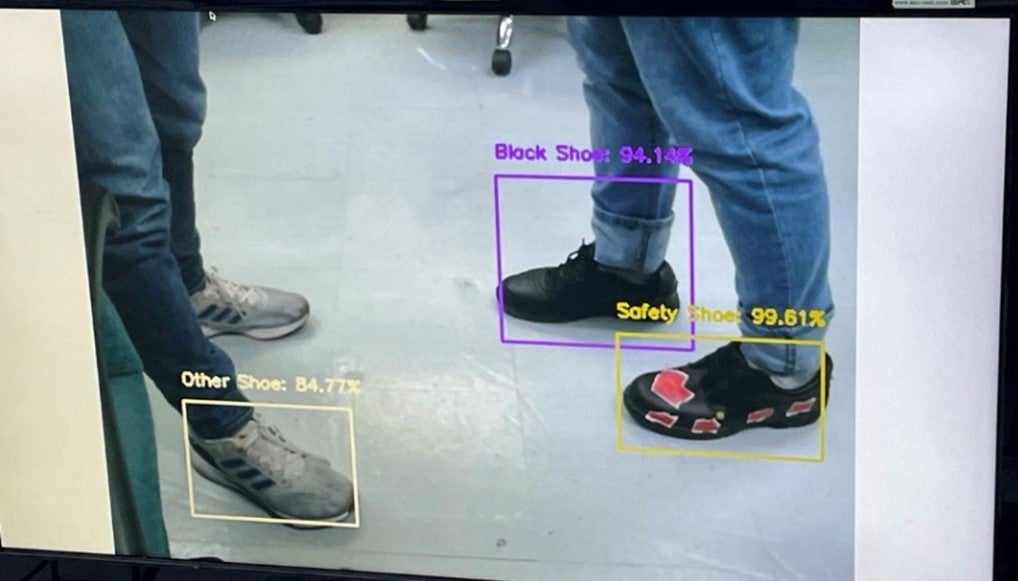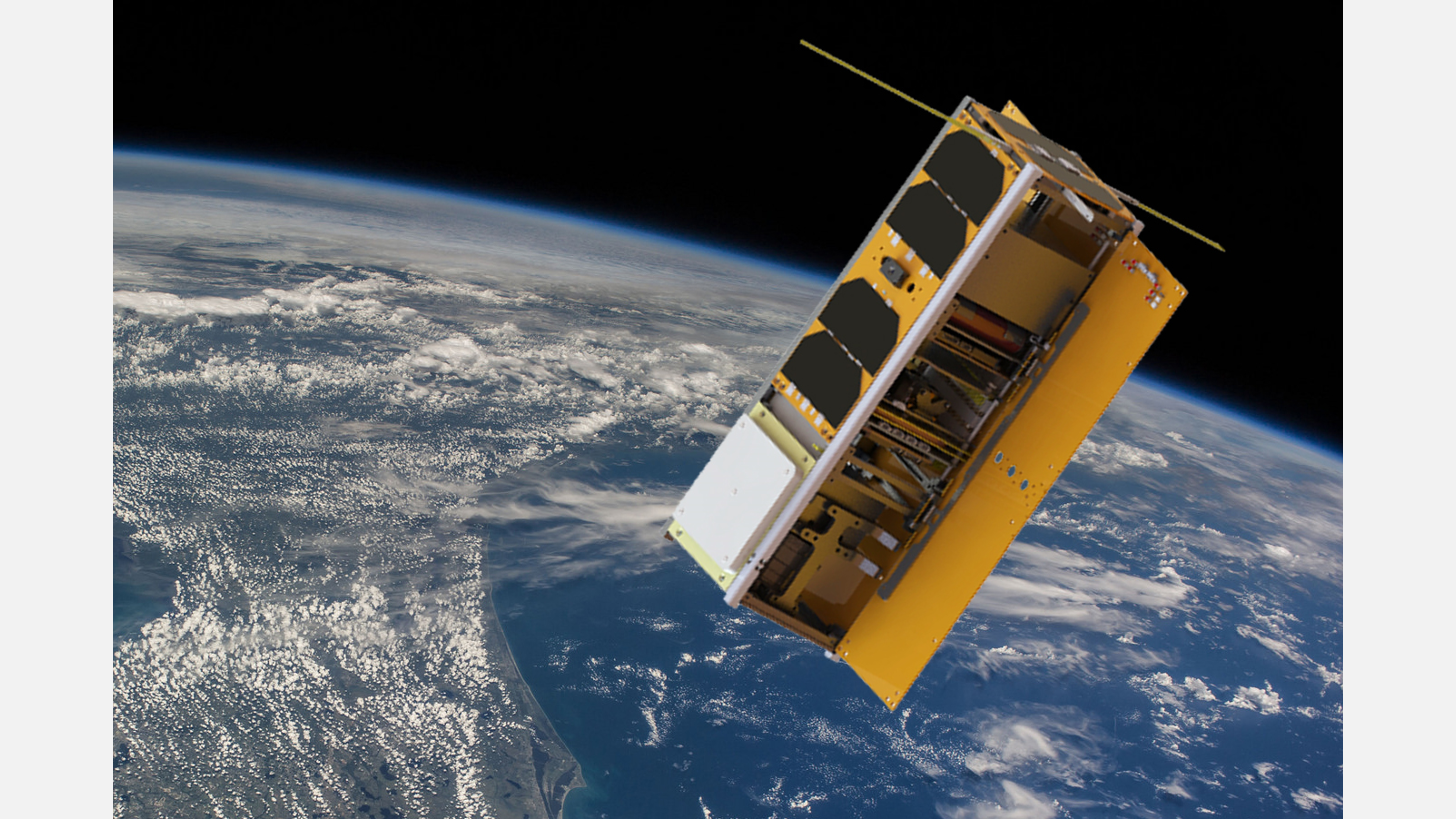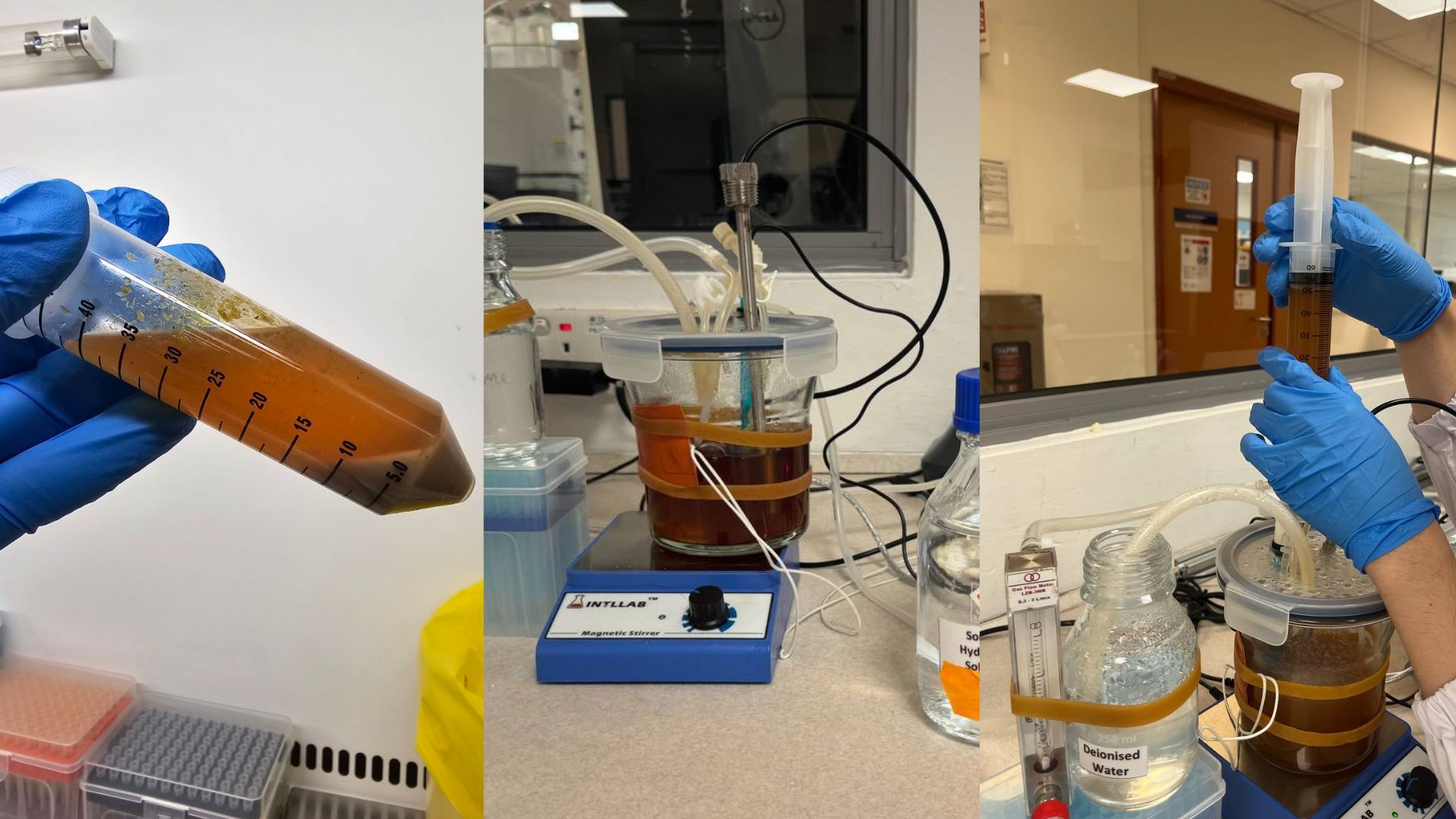CDE3301 Projects for January 2026 and August 2026 semesters

CDE3301 Ideas to Proof-of-Concept is a two-semester project course which focuses on conceptualisation, implementation and realisation of a product solution to solve an identified problem while providing experience in an integrated product design and development process where technology plays a central role. Through lecture classes, studio sessions and an open-ended project, students learn how to create a product idea to address a problem of interest, generate and evaluate concept designs, and build proof-of-concept prototypes for user testing. Students also learn how to work in a multidisciplinary team and with various stakeholders.
Find out more about course, the staff/industry-proposed projects, and student-proposed projects that will be offered for the next run of CDE3301 in the January 2026 and August 2026 semesters. Everyone is welcome to enrol in this course!
CDE3301 course timeline
CDE3301 runs across the January and August semesters of each calendar year and is roughly divided into three phases:

Students must be in NUS for both semesters of CDE3301. They cannot enroll concurrently in credit-bearing internship or go on overseas student exchange or an NOC programme during both semesters of the course.
Completing CDE3301 during Special Term
Students who need to go on credit-bearing internship, student exchange, or NOC in the August semester may be offered the option to complete CDE3301 during Special Term (i.e. May to July) immediately after the first semester of the course, subject to the following conditions:
- Everyone in the same project group must complete CDE3301 together during Special Term regardless whether they are in NUS in the August semester.
- The second half of CDE3301 cannot be taken concurrently with a credit-bearing vacation internship during Special Term.
Hence, students who want to pursue this option are advised to team up with others who want to do the same and work on the same project.
CDE3301 project selection exercise
The project selection exercise is open until 1 December 2025. Submit your choice of projects via this link:
https://forms.office.com/r/UWCV1N5GuP
Students can select from the list of thematic studios to join or propose their own projects for CDE3301.
Projects in thematic studios
Projects in similar areas are grouped into thematic studios in CDE3301, with each studio having problem statements from various industry partners. Find out more about these studios and the projects that will be offered under each studio.
Studio slot: Thursday 1 pm to 4 pm
This studio explores the design and prototyping of automation and robotics solutions that address real-world problems in areas such as manufacturing, healthcare, and service industries. Through hands-on experimentation and systems thinking, students will work on robotic mechanisms, control systems, and human-machine interaction.
Studio slot: Thursday 1 pm to 4 pm
This studio invites students to explore solutions to enhance passenger comfort and experience in aircrafts with a focus on long-haul travel. Students will investigate user needs and cabin design factors to identify areas for enhancement. Working together with industry partners such as Boeing, projects in this studio will culminate in proof-of-concept prototypes and recommendations that address convenience, physical comfort, and physiological well-being.
Studio slot: Wednesday 9 am to 12 pm
With the advent of spatial audio and 3D audio effects, smart speakers now have the ability to use advanced algorithms and audio processing techniques to place sounds in different parts of a room, creating immersive audio landscapes. In this studio, we will work with Bang & Olufsen to explore these and other technologies to design and test new listening experiences.
Studio slot: Thursday 1 pm to 4 pm
In an age where art, design, and computation converge, Creative Media Technology invites students to explore how immersive systems, generative media, and interactive interfaces can transform storytelling, cultural experience, and public engagement. This studio bridges creativity and engineering innovation, empowering students to design experiences that are both technologically advanced and emotionally resonant.
Studio slot: Wednesday 9 am to 12 pm
This studio explores the next generation of resilient, equitable food systems using cutting-edge technology. Students will work in interdisciplinary teams to tackle real-world challenges such as designing AI-powered urban farms, creating zero-waste product design, and developing farmer-centric IoT tools for precision agriculture that can delivering impactful concepts to transform the food supply chain from soil to table.
Studio slot: Wednesday 9 am to 12 pm
This studio addresses critical public health and community challenges affecting Singapore through human-centred design and emerging technologies. In partnership with the Clementi Constituency Office, students will develop contextually appropriate solutions to address various needs in the community.
Studio slot: Wednesday 9 am to 12 pm
In an era where Generative AI, spatial computing, and immersive technologies are redefining how humans learn and perform, this studio invites students to push the boundaries of training and simulation for healthcare and aviation. It explores how Extended Reality (XR) platforms can be integrated with contextual intelligence and large language models (LLMs) to create realistic, adaptive, and emotionally responsive training environments. Students will investigate how immersive systems can be made more intelligent, human-centric, and effective, focusing on both technical innovation and user experience design.
Studio slot: Wednesday 9 am to 12 pm
This studio aims to tackle real-world healthcare challenges in paediatric care in collaboration with a public hospital to address clinical and operational problems by developing innovative, practical solutions that enhance patient care, improve clinical efficiency, and advance healthcare technologies.
Studio slot: Wednesday 9 am to 12 pm
Wearable technology is transforming the way humans perceive, interpret, and interact with their surroundings. This studio focuses on human-centred intelligent wearable technologies for healthcare applications, exploring how design, sensing, and computation can converge to empower innovative medical care. Through a combination of research, prototyping, and experiential learning, students will investigate how wearable devices can monitor, assist, and enhance human wellbeing across clinical and personal health contexts.
Studio slot: Thursday 1 pm to 4 pm
In this studio, students will learn how to create innovative medical technologies to meet the needs of clinicians following the Biodesign methodology which encompasses a thorough analysis of a clinical need, careful selection and evaluation of possible solutions, and development of a proof-of-concept prototype.
Studio slot: Thursday 1 pm to 4 pm
This studio delves into the critical challenge of youth mental wellness through the lens of human-centered design and creative technology. In a unique partnership with the National Gallery Singapore, students will focus on scaling Strength Through Art (stART) — a proven resilience-building programme that uses art to foster visual and emotional literacy in adolescents. The core challenge will be to explore innovative ways to expand the programme's reach to a wider audience while preserving its profound impact and accessibility.
Studio slot: Thursday 1 pm to 4 pm
This studio brings together like minded students who are interested in artificial intelligence (AI), edge computing, Internet-of-things (IoT) systems and general automation. Along with the studio supervisors, teams will be working together with industry/technology partners to understand the project needs and prototype solutions through a build, test and validation approach that is in line with the project partner's vision.
Studio slot: Tuesday 9 am to 12 pm
This studio aims to bring together like-minded people to take part in projects related to space systems. The studio also aims to get students connected with people in the industry and aims to give them a head start for a career in the local space industry. This studio will focus on the development of the Galassia-5 nanosatellite.
Studio slot: Tuesday 2 pm to 5 pm
This studio aims to bring together like-minded people to take part in projects related to space systems. The studio also aims to get students connected with people in the industry and aims to give them a head start for a career in the local space industry. This studio will focus on the University Rover Challenge.
Studio slot: Thursday 1 pm to 4 pm
With significant environmental and economic benefits, many companies and organisations are actively exploring ways to achieve circularity and energy efficiency. This studio explores problems in sustainability by creating products and solutions to promote circularity and improve the efficient use of energy and natural resources that can also lead to creation of new jobs and commercial opportunities for businesses.
Student-proposed projects
Interested to work on projects proposed by your peers? Find out more about these student-proposed projects and get in touch with the proposers if you are keen to join them!
Each student-proposed project should have between 3 and 5 members, preferably from at least 2 different disciplines.
Project proposer: Hu Lifan (e1480030@u.nus.edu)
This project seeks to empower visually impaired individuals with an intuitive, AI-driven understanding of their surroundings. By integrating cutting-edge Vision-Language Models (VLMs) and embedded AI hardware, the system will describe environments in real time — helping users identify people, locate important objects, and navigate their daily spaces safely and independently.
The goal is to design a lightweight, wearable assistant that operates fully on-device, ensuring both privacy and low latency. Beyond mere object detection, the system aims to convey meaningful context: recognizing familiar faces, describing room layouts, and detecting potential hazards. The device will be designed for ease of use, allowing users to operate, charge, and maintain it without external help.
Through this project, we will develop a hardware-software pipeline, encompassing perception, interaction, and accessibility design. Ultimately, this project aspires to restore autonomy, dignity, and confidence to visually impaired users—bridging human perception and intelligent computing through accessible technology.
Project proposer: Tsai Ho-Hsun (e1482086@u.nus.edu)
Motivation: Introduce/develop more autonomous systems in a B2C setting.
Intended objective: Automated system implemented in beverage shops to reduce labour cost and increase available hours.
Deliverables: A functioning system with a kiosk that can be implemented in a shop directly with routine restocking of raw ingredients, and a report analyzing the pros and cons of this automated system with existing method.
Project proposer: Tay Hock Jun (e0702171@u.nus.edu)
Lymphedema is a non-curable chronic condition affecting 250 million patients worldwide that results in accumulation of lymphatic fluid in the limbs. Our proposed solution, FREESTRYDE, is a lightweight, modular, active compression device designed for everyday wear. It contains pressure sensors to monitor swelling and pulls heart rate and bioimpedance data from a smartwatch or fitness tracker to monitor user activity. It then uses AI to predict swelling patterns based on user activity and generate specific compression profiles which apply adaptive compression before discomfort starts and only when necessary. The compression mechanism is a mechanical band tensioning system which provides peristaltic compression to the limb to drive accumulated fluid upwards. Both clinicians and patients can track progress real time via our connected app, reducing unnecessary clinic visits.
Project proposer: Magdalene Lim Yong Qi (magdalenelim@u.nus.edu)
This project aims to explore how smart wearable technology can be seamlessly integrated into the daily lives of the elderly (eg. wearable smart socks). The primary objective is to prevent falls and enable rapid response and recovery among community-dwelling seniors. This initiative will be conducted in collaboration with our stakeholders at the Tan Tock Seng Hospital (TTSH) Innovation Department.
Through this project, we will develop an integrated hardware–software system that encompasses perception, interaction, and accessibility design. Ultimately, the project seeks to bridge the gap between patients and the healthcare system, enhancing visibility, responsiveness, and quality of care.
Project objective: design a familiar, low-adaptation wearable that seamlessly integrates everyday comfort with smart functionality. Equipped with real-time fall detection and alert systems, the device will provide continuous, reliable monitoring to enhance safety and peace of mind for both elderly users and their caregivers. Prioritising ease of use and accessibility, the design will be suitable for both home and hospital environments, supporting not only older adults but also secondary users such as community nurses, caregivers, and allied health professionals.
Project proposer: Neo Yu Xuan (e1157210@u.nus.edu)
Waste Too Taste aims at using AI-driven recommendation logic — similar to how Netflix suggests shows — to smartly pair surplus/near-expiry supermarket items into meal kits that make sense together. By analysing item attributes, purchase patterns, and recipe databases, the AI identifies complementary ingredients and bundles them into optimised “blind bags,” helping supermarkets clear stock efficiently while offering customers convenient, ready-to-cook sets. The end product would likely be a software that can be used easily by supermarket staff. The project can even be potentially expanded towards other target audiences (e.g. hawker stores struggling with surplus ingredients at the end of the day could utilise this food-pairing tech to come up with new recipes that they can sell as a "surplus meal").


